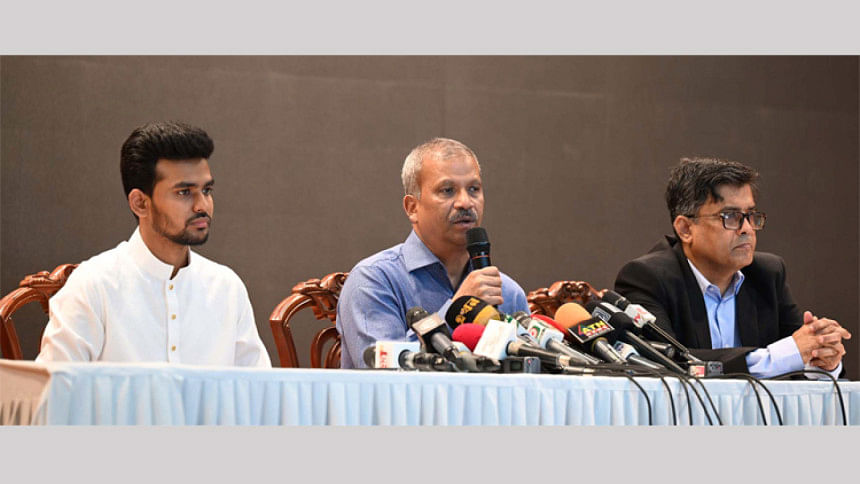Cybersecurity law: 9 contentious sections shed

The advisory council of the interim government yesterday approved the Cyber Security Ordinance, which makes online abuse punishable and recognises internet access as citizens' right.
The ordinance also drops nine sections of the cybersecurity act that criminalised criticism, misinformation, and defamatory content related to the Liberation War, spirit of the Liberation War, Bangabandhu Sheikh Mujibur Rahman, national anthem, and the national flag.
The ordinance was approved at an advisory council meeting chaired by Chief Adviser Prof Muhammad Yunus.
A draft law on redrawing boundaries of electoral constituencies were also approved at the meeting.
Briefing reporters after the meeting, Law Adviser Prof Asif Nazrul said the nine sections dropped from the Cyber Security Act had been widely criticised over the years. Most of the cases filed under the act were based on those sections.
All the cases filed under the now-repealed sections will also be automatically dismissed, he added.
Many journalists had suffered after they were sued under those sections, Prof Asif said.
The sections concerning offences and penalties related to the deterioration of law and order, as well as the transmission or publication of offensive, false, or threatening information and data, have also been abolished.
The law will criminalise the publication and threats to publish sexually exploitative content targeting women and children online, as well as content that incites violence through "religious hatred", the law adviser said.
The ordinance clearly defines "religious hatred" to prevent any possible misinterpretations and harassment of citizens, he said.
When a case is filed over the aforesaid crimes, the complaint must be submitted before a court. If the judge finds that the case lacks merit, they will have the authority to dismiss the case at the pre-trial stage.
"Under the proposed Cyber Security Ordinance, for the first time, online abuse and sexual harassment of women and children have been recognised as punishable offences."
Some cases can be settled out-of-court and those accused of committing such crimes may get bail, he said.
Cybercrimes committed using artificial intelligence (AI) will be punishable, Prof Asif added.
A cyber security council will be formed under the act, he said, adding that if the authorities remove an online content, subsequent approval from the court must be obtained.
If the court rules that the content should not have been removed, it must be reinstated. Furthermore, the public must be informed when a content is taken down.
Prof Asif said the draft of the ordinance underwent 25 revisions following consultations at various levels. The final version was prepared after a three-hour meeting with civil society members.
Following legal vetting by the law ministry, the ordinance will be formally issued and it will be put in effect within a week, he said.
Many journalists had also been victimised under these provisions regarding defamation, he said.
Those accused of fraudulence in e-transactions, inciting religious or ethnic violence, hate speech, sexual harassment, blackmail, and publication of obscene material may be granted bail, he said.
The maximum punishment under the act will be two years in prison, he said.
"There will also be provisions for punishment in cases of false accusations. The authorities will have measures in place to detect such cases."
Online betting will be prohibited under the act, he said.
REDRAWING CONSTITUENCIES
The boundaries of constituencies were often drawn arbitrarily under the previous government, he said.
The Election Commission had proposed some amendments to the law, and the draft has now received final approval.
Once the ordinance is gazetted, the EC will be able to carry out the necessary activities.

 For all latest news, follow The Daily Star's Google News channel.
For all latest news, follow The Daily Star's Google News channel. 





Comments